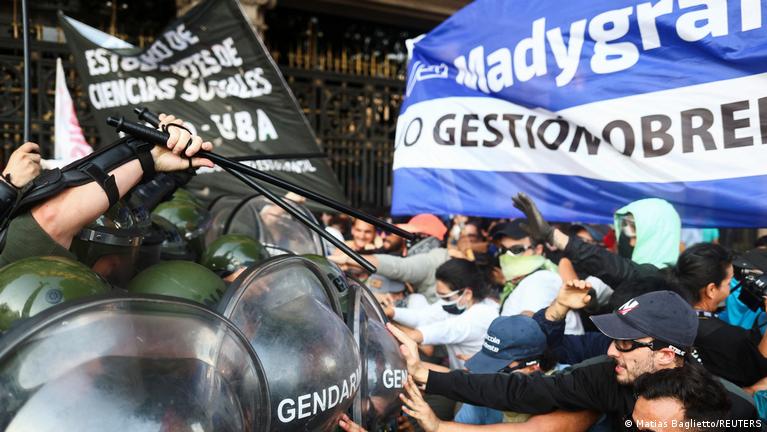Protests erupted in Buenos Aires as lawmakers deliberated on a contentious bill proposed by newly-elected president Javier Milei. The “omnibus bill” features numerous articles that, if passed, will instigate comprehensive free-market reforms. Elected in November on promises to revamp Argentina’s beleaguered economy and reduce inflation, Milei’s proposals have encountered strong opposition from some legislators.
Milei has cautioned that without radical reforms, Argentina would confront “a social catastrophe of biblical proportions.” The country currently grapples with a staggering annual inflation rate of 211%, the highest in over three decades, with over 40% of the population living in poverty, according to official statistics.
Originally encompassing more than 650 articles, the bill has been significantly scaled back in an effort to secure support from the opposition-dominated lower house. Omitted provisions include a tax system overhaul and changes to pension calculations. While the bill still advocates the privatization of several state-run entities, oil giant YPF is no longer included.
However, a provision granting President Milei special emergency powers—enabling decisions without Congressional consultation on economic and security matters—remains, albeit with the duration halved from two years to one. Critics argue that the bill jeopardizes Argentina’s democracy, while Milei contends that “shock therapy” is necessary for economic recovery.
Despite support for Milei’s bold plans among many Argentines, some reforms have encountered obstacles. A recent court ruling declared the labor reforms enacted by Milei through decree unconstitutional, prompting suspension pending an earlier court decision.
While the government can appeal this ruling, the focus currently appears on securing approval for the omnibus bill. Deliberations in the lower house are scheduled to continue, with a subsequent review and vote expected in the Senate if approved.















































